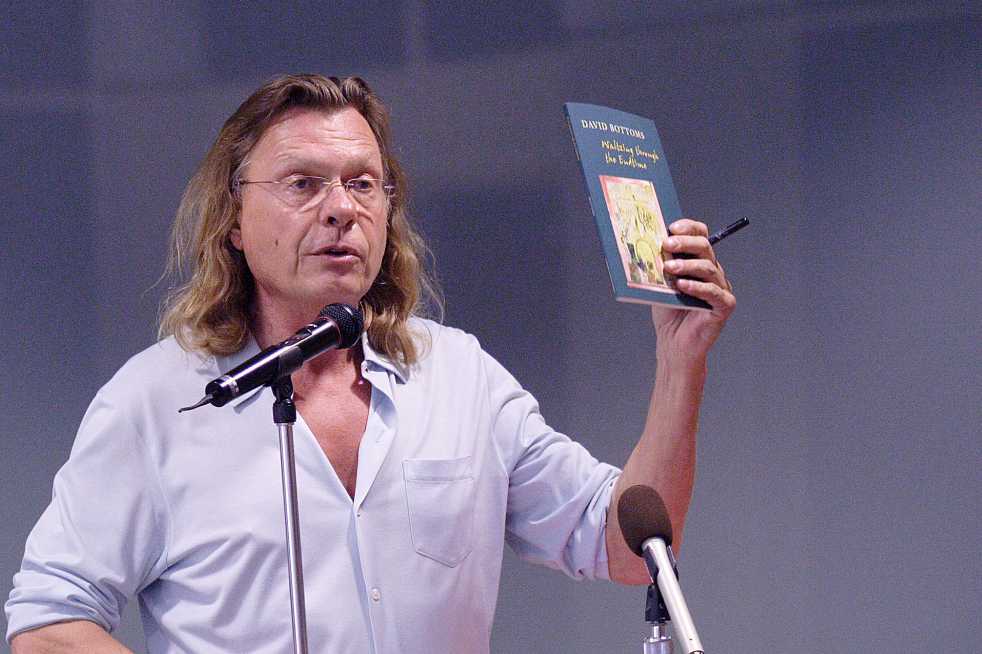While many people associate Tech with renowned science and research, Professor Tim Lux is proof that the liberal arts are also flourishing at Tech. The many times published poet hopes to show students the poetry and art are integral to a successful life.
What is your position at Tech and how long have you been a faculty member?
This is my 11th year at Tech. I hold the Bourne Chair in Poetry. I teach two classes each semester—one the reading of poetry, the other a poetry workshop. Henry Bourne was an EE professor at Tech. He and his wife Margaret decided to endow the position because they believed Tech students should have the option of studying poetry—reading it and writing it.
At the same time, another man, Bruce McEver, a Tech alum, and poet, and CEO of Berkshire Capital, also decided to endow a chair in poetry for the same reasons. So Tech, I believe, is the only university in the country with two endowed chairs in poetry. The McEver position we divide up between several people each year. We have a community outreach program that provides free workshops, we have a major reading series, and we send poets to schools. All this is free. The logic being this: given gifts, they should be shared.
What brought you to Tech?
I was invited in the spring of 2001 as a visiting professor to inaugurate the McEver Chair and help set in motion what was to become Poetry@Tech. I liked the students here tremendously and Tech offered me the opportunity to come on a permanent basis as the holder of the Bourne Chair.
Where did you attend undergraduate school?
Emerson College, in Boston.
What was your favorite aspect of college life?
Books, poetry, literature in general, and we partied a little bit too.
Why didn’t you graduate from the Iowa Writers Workshop?
I had been offered a teaching job back at Emerson, I had a book coming out. I was having the best time of my life at Iowa, I made friends who are still my best friends in poetry. I went back there to teach about a decade later and I actually looked into finishing my MFA but it seems they had no system that would allow a teacher to be a student at the same time!
Was becoming a professor always a goal of yours?
No. I wanted to be a [high-school] English teacher but I published early and got a little teaching experience early, so I became a college English teacher.
How do classes on poetry and other literature at Tech compare to classes at other, more liberal arts based, schools you’ve taught at, such as Sarah Lawrence or Oberlin College?
Not a lot. Inside the classroom it’s the same. Outside the classroom, Sarah Lawrence students probably wear more black that Tech students.
You are the Bourne Chair in Poetry at Tech, what exactly does that mean? What are your responsibilities?
It means I’m a professor and part of my salary is paid by the endowment funds. All of the rest of the funds go to Poetry@Tech. I help appoint the Visiting McEver Professors, organize the reading series, teach some of the community/outreach classes.
Here, I’ll have to admit a character flaw: I believe in giving credit where it’s due, and if hadn’t been for Ginger Murchison’s help for the first four years at Tech and Travis Denton’s help going on seven years now (Associate Directors of Poetry@Tech) none of it would have happened. They’re both brilliant organizers and both do regular turns at Visiting McEver poet/teachers.
Why do you believe poetry is so important for students at Tech?
It’s important for all students everywhere. Poetry (and I think it safe to say all the arts) helps us turn into humans and not mere people. It can make us more alive, and often it makes us feel less alone. For many years now more and more medical schools have been including poetry in their curriculum, even business schools. And disbelieve this at your peril: Poems are engineered! It should be obvious that poetry doesn’t need to be defended anymore than bread or air needs to be defended.
You’ve published multiple books of poetry while at Tech. How do you feel the students or atmosphere at Tech has influenced those works?
Probably because I love teaching so much and because Tech kids are so smart and creative—that helps the old racehorse keep kicking. And I really dig the baseball team!
What is your greatest, pie-in-the-sky dream for poetry in general at Tech?
No pie in the sky: poetry classes, poetry readings (by some of the best poets in the country), a new poetry club, a literary magazine (Erato) are all available to interested Tech students. There’s a new TechArts Festival this spring. The arts, the humanities, are alive and well at Tech—Ivan Allen College is the liberal arts college of the future, one that combines, even marries, the traditional arts and humanities with the new digital world.
If you could discuss your works with any person, dead or alive, who would it be?
The poet whose hand I would most like to shake is John Keats and a close second would be Hart Crane. I’ve been to Keats’ grave in Rome and Hart Crane was lost at sea so it won’t happen in this world.
What is your advice to any aspiring writers or poets at Tech?
Read, read, read, read (as well as live your life)!
